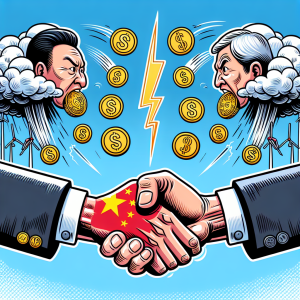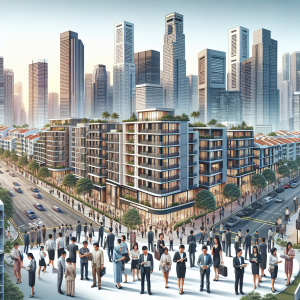Singapore’s economic outlook has taken a significant hit as the government slashes its GDP forecast for 2025 to a range of 0% to 2%. This revision is primarily attributed to the ongoing US-China tariff war, which has become a major risk factor for the global economy and, consequently, for Singapore’s trade-dependent market.
The repercussions of the tariff conflict are far-reaching, affecting not only the US and China but also countries like Singapore that are deeply integrated into global supply chains. The US has implemented a series of tariffs that could potentially reduce its GDP by up to 1% in the long term. In retaliation, China has focused on non-tariff measures and selectively targeted US agricultural and energy exports, leading to an overall increase in trade tensions. The effective weighted average tariff rate on Chinese goods is expected to rise significantly, potentially reaching 30% by 2027, which could further disrupt trade dynamics.
As the trade war escalates, the implications for Singapore are concerning. The nation relies heavily on exports, and any slowdown in global trade can have a direct impact on its economic growth. Recent estimates suggest that the tariffs could lead to a loss of 732,000 jobs in the US by 2025, which would, in turn, affect demand for Singaporean goods and services. The increased costs associated with tariffs are expected to average around $1,243 per household in the US by 2025, further dampening consumer spending and economic activity.
Moreover, companies are adapting to these challenges by relocating production and adjusting pricing strategies to mitigate the effects of tariffs. For instance, major automakers like Toyota are reconsidering their manufacturing bases, highlighting the broader trend of businesses reassessing their supply chains in light of these trade tensions.
In conclusion, the US-China tariff war poses a significant threat not only to the economies of the two nations but also to Singapore’s economic stability. As the government adjusts its GDP forecasts and prepares for a challenging economic landscape, stakeholders across industries must remain vigilant and adapt their strategies to navigate these turbulent times. A de-escalation of tariffs could provide a much-needed boost to global economic prospects, while continued escalation may lead to deeper challenges for Singapore and beyond.





